Friday, March 18, 2005
 Day Two
Day TwoThe second day of eLearning Producer I orchestrated a panel session entitled What Comes After eLearning: F-learning.
The day before I'd heard the statements "Courses are dead" and "Classes are dead" go unchallenged. Now we were going to experiment with "Presentations are dead." Presentations are "pre," i.e. prepared in advance, but conversations are "with," meaning they are co-created on the spot.
The room was full, the discussion lively, and viewpoints all over the map. Joining me a co-conspirators were pals Allison Rossett, Ellen Wagner, Clark Quinn, and David Holcolmbe. We must have set a record for the number of topics covered in a single session.
The audience wrote concerns or trends about the future of eLearning, and passed them in. The panelists kicked things off, and for the next hour we had a group conversation about where things are headed in the next three to four years. The audience wanted to know about mobile learning, games for learning (although half said games would never be allowed in their organization until the name was changed), the ability of humans to keep up with technical innovation, whether program quality is headed up or down, the role of simulations, and the impact of globalization.
Macromedia's Ellen Wagner made it clear that Asia is a world apart. Leapfrogging poles and wires, China is chock full of wireless telecom. Japanese kids are so wedded to their cell phones that when a battery goes dead they say, "I feel like I've lost half my brain." Korea has nearly ubiquitous broadband. Europe still has broadband deficiencies but the entire phone system is interoperable. And the U.S. is a quazy-quilt of competing standards, screwy phone service, and spotty wi-fi.
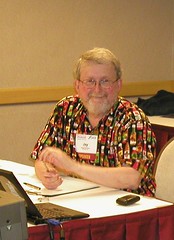 We debated whether the ability to Google endless factoids clogs the brain with trivia or permits time for developing reflection and critical thinking. We agreed that loose coupling will lead to flexible systems and, by extension, flexible organizations. We discussed whether learning itself needs to be redefined to include the augmentation fromm the net.
We debated whether the ability to Google endless factoids clogs the brain with trivia or permits time for developing reflection and critical thinking. We agreed that loose coupling will lead to flexible systems and, by extension, flexible organizations. We discussed whether learning itself needs to be redefined to include the augmentation fromm the net.I'm not going to even try to describe the conclusions from this session: You had to be there. No one threw doctrinaire grenades into the discussion. The talking stick moved around the room swiftly. We ended the conversation three minutes before the final bell to leave time for individual reflection.
A session like this gets the cerebral gears turning.
From my vantage point, training professionals are opening up to fresh thinking.
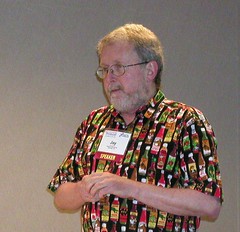 Not that this is new, but the future holds:
Not that this is new, but the future holds:- Targeting business objectives, not training activity measures.
- A renaissance of performance support, this time facilitated by agent-based software.
- Content delivered in nuggets.
- More coaching and mentoring, less class and instruction.
- Competencies replaced by values.
- More focus on groups, less on individuals.
- Integration of customers, partners, subcontractors, suppliers into learning.
- Sharing replaces hoarding.
- Much less dependence on formal workshops and instructors.





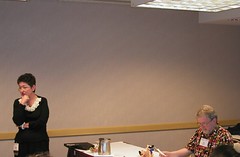
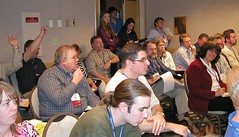



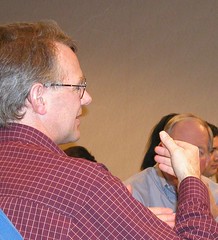
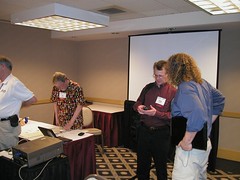




0 Comments:
Post a Comment
<< Home